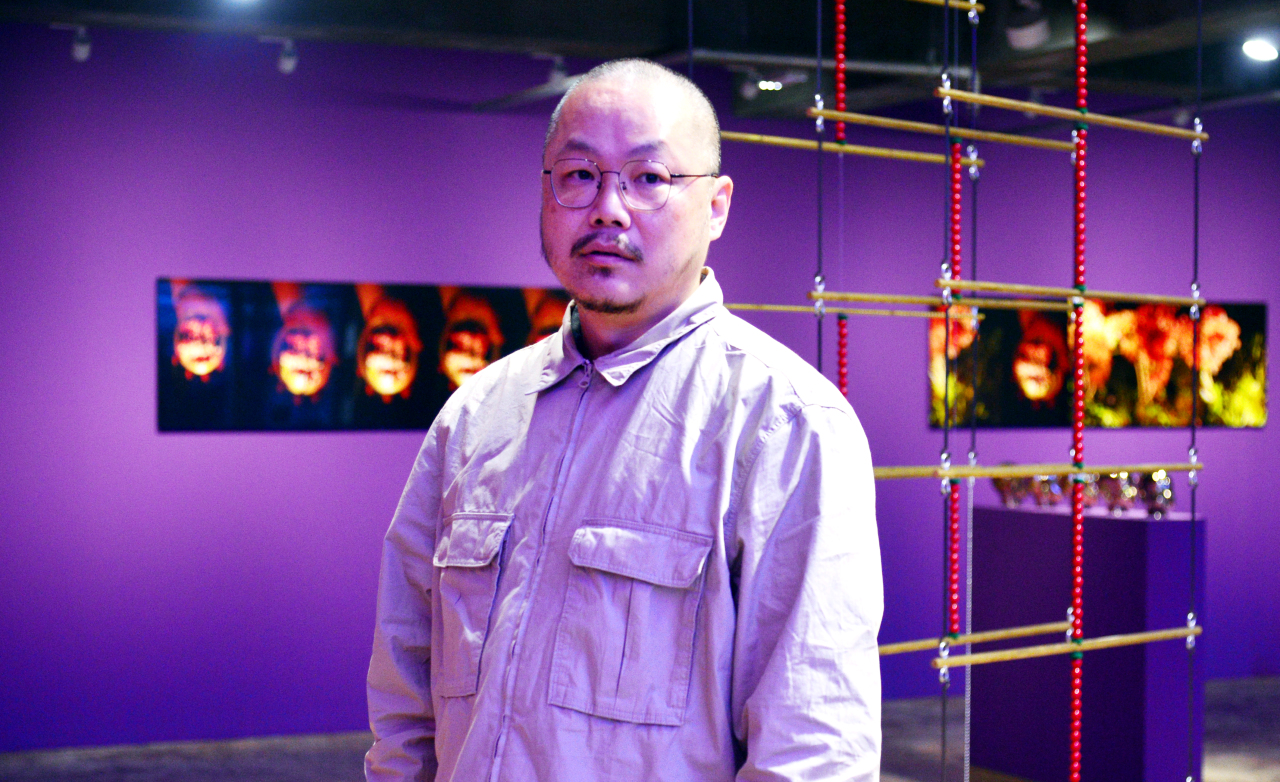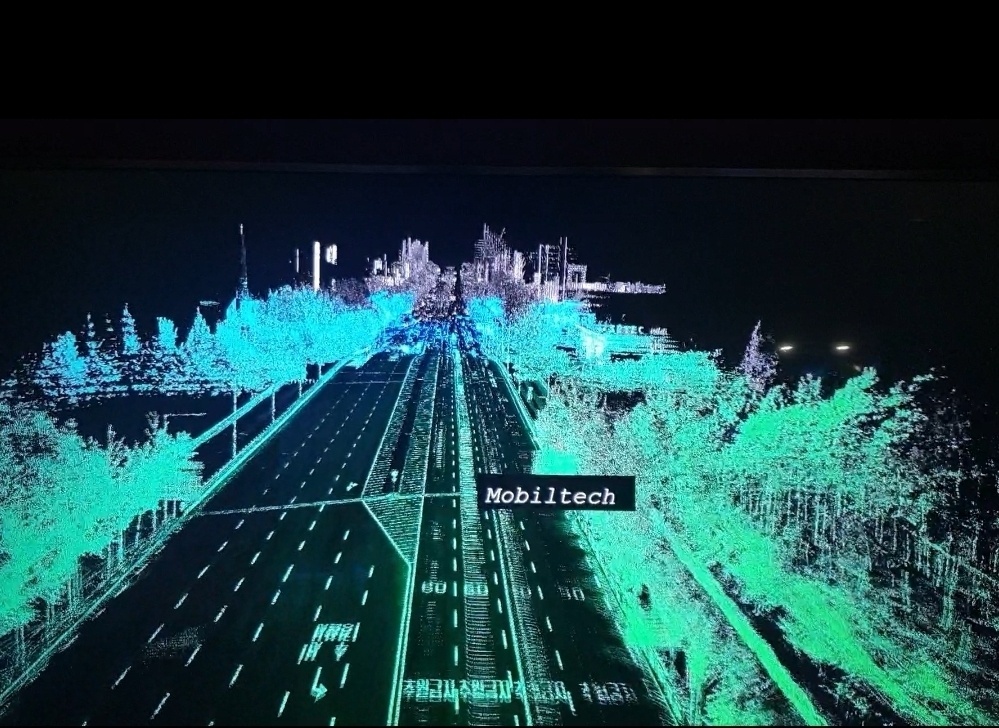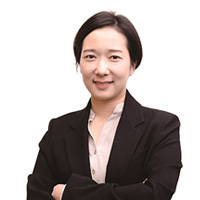[Herald Interview] Yangachi’s odd but beautiful works peek into hyperconnected world
By Park YunaPublished : Nov. 23, 2020 - 13:11

After stepping into a completely purple exhibition hall, visitors to this gallery may find themselves a bit confused. On display are metal sculptures with multiple eyes, a line of hands with a string of magnetic beads, the Virgin Mary with minerals attached to her pupils -- each looking quite odd, but also beautiful.
Visitors will each have their own interpretations of the objects and find themselves curious about Yangachi, the creator, and what he intended to achieve through these beautifully odd works.
The works are on display at “Yangachi: Galaxy Express,” the artist’s first solo exhibition in three years, currently being held at Barakat Contemporary in central Seoul. The exhibition is Yangachi’s second show under the “Galaxy” theme and it delves into the connection between humans and other objects over the past several years. This time, he explores a hyperconnected world with fast-developing technologies.

Each visitor is given a handheld crystal lens called “Your New Eyes,” which they can use to look at the artworks on display. Through the lens, objects appear split into multiple angles, breaking up the conventional way that people see things. The artist aims to propose a new visual system, which looms ahead with emerging technologies such as AI, 5G and IoT.
“We are connected with many things, not only with other people but also with objects nowadays. What is more, those objects connected with you are connected together, creating an incomprehensibly enormous networking system,” Yangachi said Thursday during an interview with The Korea Herald. “The exhibition presents sort of a scenery of the future world.”
In 20 or 30 years, the extremely interconnected world the artist imagines will be totally different from the one we now know. “Our desire to see things is growing into a totally different level,” he added.
There are different responses to what the world would look like in the near future and how humans will coexist with these technologies. Some people are horrified by the rapidly developing technology, while others regard this reality as something exciting, similar to how Yangachi’s artworks look odd, but also beautiful. This ambivalence is related to the artist’s idea that many phenomena are twofold.
Another key piece in the exhibition is “Galaxy Express,” a video work created using images from lidar cameras. Lidar cameras “see” their surroundings not with a lens, but through data, and are currently used in autonomous cars, the artist said. With this video work, the artist urges us to think about the unfair sharing of profit made by using data collected from individuals.

"Think about the autonomous cars operated with mobility that contains a number of bits of information about drivers. In fact, we are the provider of information, but it is only a few companies that take all the profit from it, which is ironic. I think we have reached a point where we need to discuss this issue more openly.”
Yangachi is also interested in the future where AI technology will ultimately free mankind from manual labor. When the South Korean Go player Lee Se-dol declared his retirement in 2019 after he was defeated by an AI player, Yangachi found it to have a significant meaning.
“To me, his retirement as a Go player was like asking us -- ‘As a human, what are you actually going to do in the future?’ Many people are worried about losing their jobs as they are replaced by technology. But I think it is a really exciting thing for humans, actually. It is exciting to think what we will do as humans after we are freed from labor,” he said.
For the next 10 years, Yangachi would like to focus on the fast-changing future under the “Galaxy” theme.
“What I think artists should do is to propose social issues in a language of forms and structures. I would like people to have an opportunity to criticize or think about what I propose,” he said.
The exhibition at Barakat Contemporary runs through Dec. 13.
By Park Yuna (yunapark@heraldcorp.com)











![[Today’s K-pop] BTS pop-up event to come to Seoul](http://res.heraldm.com/phpwas/restmb_idxmake.php?idx=644&simg=/content/image/2024/04/17/20240417050734_0.jpg&u=)





![[KH Explains] Hyundai's full hybrid edge to pay off amid slow transition to pure EVs](http://res.heraldm.com/phpwas/restmb_idxmake.php?idx=652&simg=/content/image/2024/04/18/20240418050645_0.jpg&u=20240419100350)

